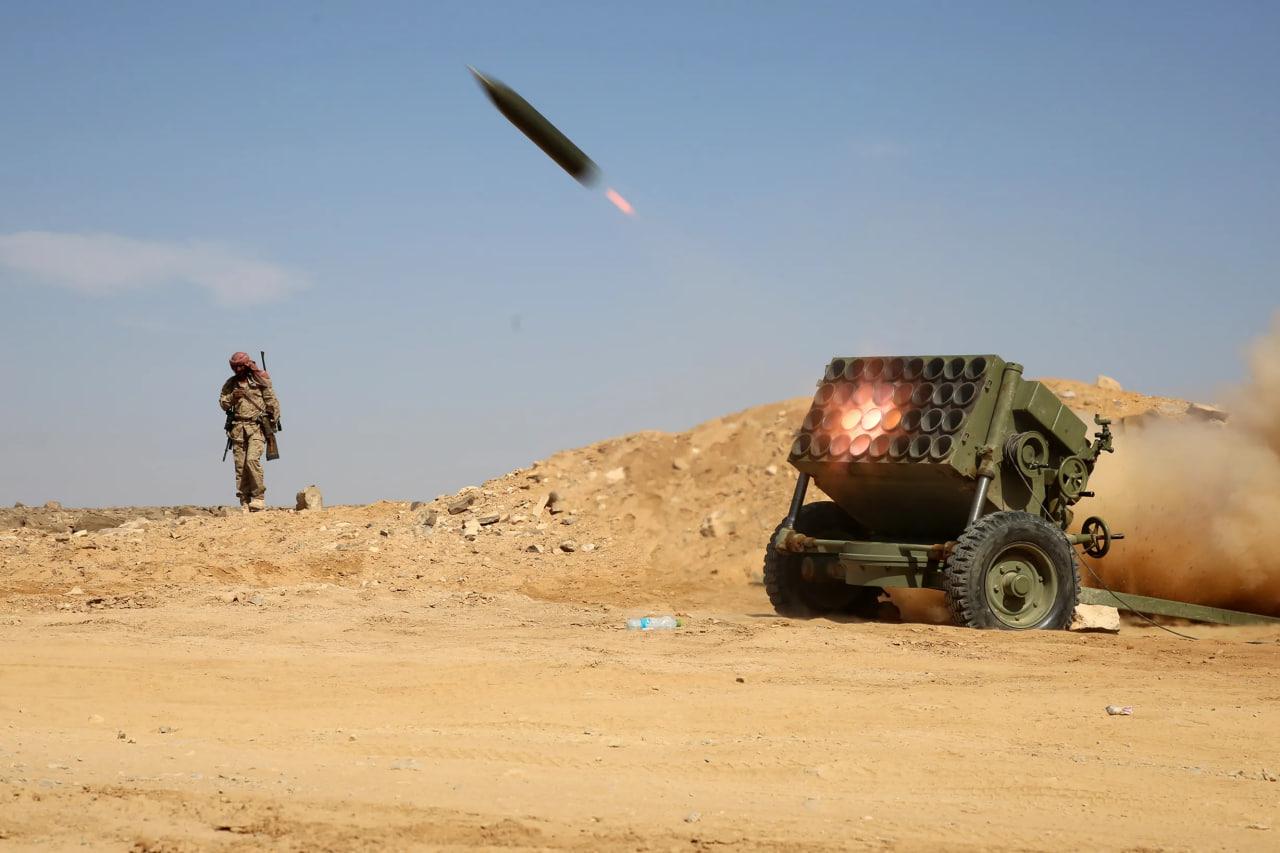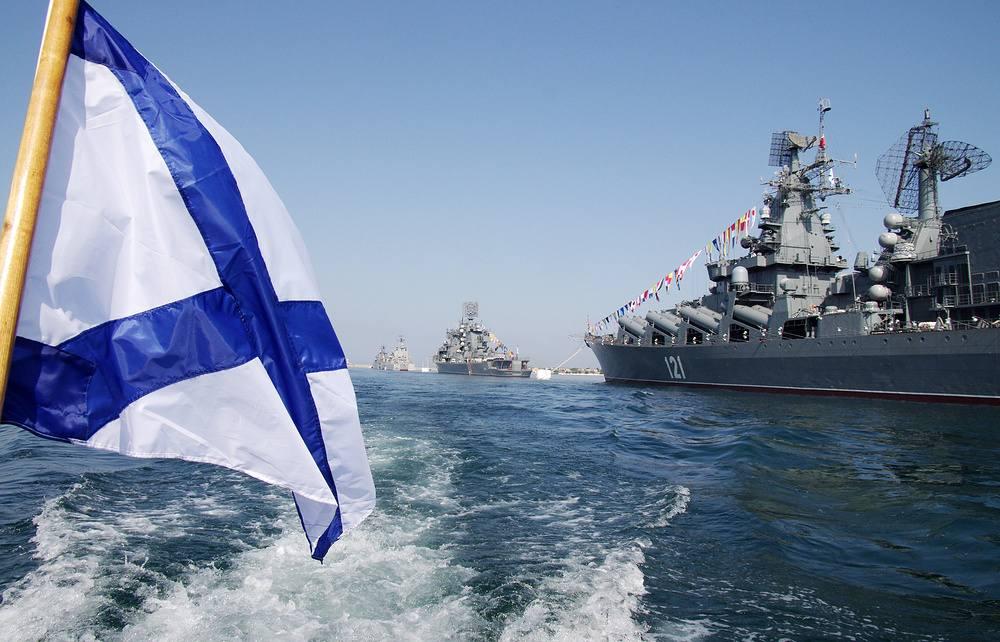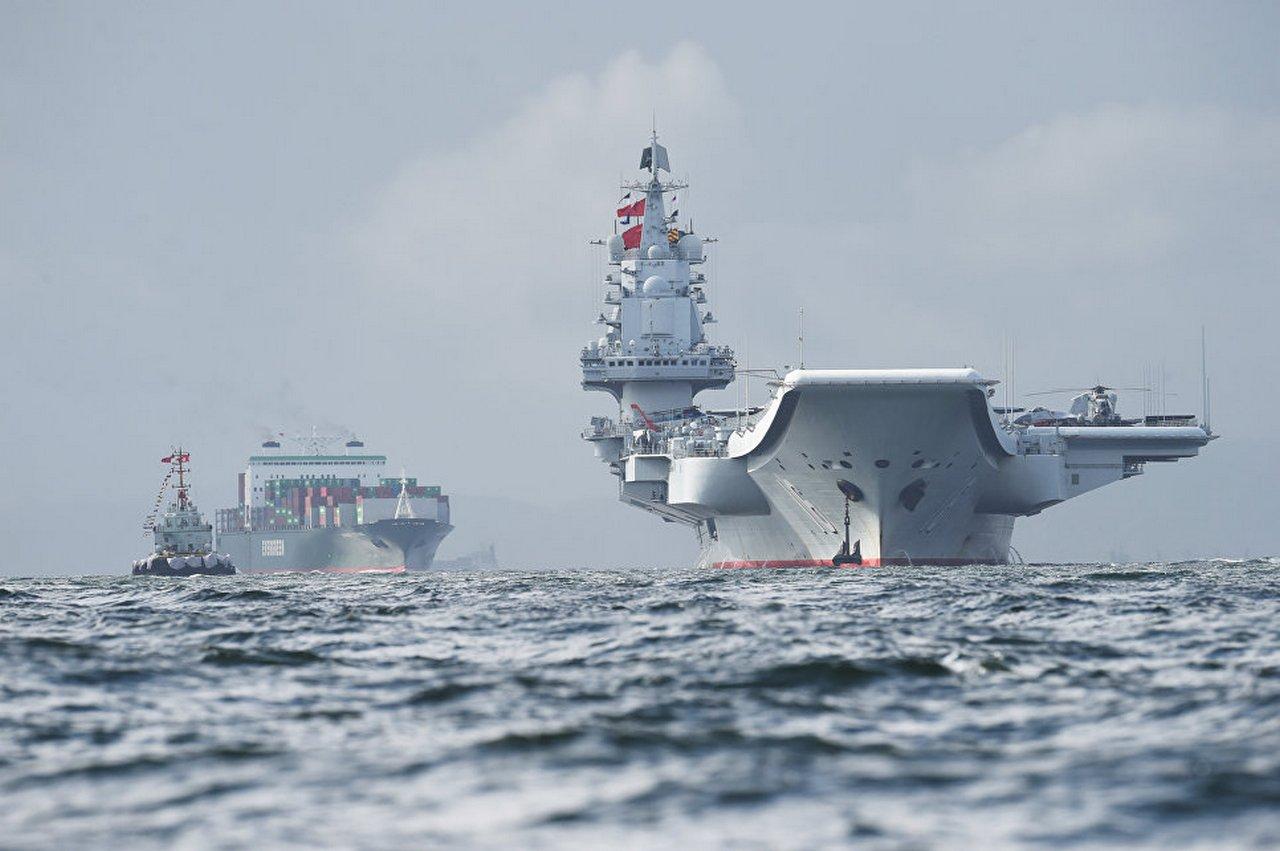Global superpowers vie for control from Red to Barents seas China, Russia and Iran against the West
On March 28, Russian warships entered the Red Sea, having conducted exercises in the Gulf of Aden the day before. Thus, Russia became another world power that sent its forces to the vicinity of the Suez Canal. Previously, squadrons of Western countries had already been deployed there.
Neither the West, nor Russia, nor especially China will break each other’s conventional “backbone” in the war in Eastern Europe. In a geopolitical sense, much more important is their confrontation on maritime communications from the Red to the Barents Seas, as well as the struggle for tonnage and trade transportation.
Yemeni rebels give check to the West in the Red Sea
For months now, the topic of the confrontation with the Yemeni Houthi rebels in the vicinity of the Suez Canal—the Red Sea—has not disappeared from international news. Concerned for this important transport artery for Western dominance in the world, on December 19, the United States, together with Great Britain, Canada and France, began military operations against the rebel movement in the Red Sea. On February 12, the European Union began the same operation.
In doing so, they responded to the check posed to the global West by the Yemeni rebels. Last fall, they began attacking ships passing off the coast of their country in the vicinity of the Suez Canal, which is important for global trade. Officially, the Houthis announced that their actions are aimed at intercepting cargo related to Israel. But in fact, their operation was perfectly in line with the strategic interests of Iran (which has been collaborating with the Houthis since the 2000s), as well as Russia (which has become friends with Iran in recent years) and China (which has become closer to Iran even earlier).

From the very beginning, observers noted that if the Houthis attacked Russian and Chinese ships, it was most likely by mistake. And last week, Bloomberg directly accused Beijing and Moscow of “agreeing” with the Houthis on safe passage for Russian and Chinese ships in the Red Sea. However, the Houthis themselves recently announced that there is nothing to fear from Russian and Chinese ships.
There are also interesting coincidences in the timing of the attacks. The matter is that the operation of Yemeni rebels against Western ships began in November after a new series of US sanctions in October against tankers carrying Russian oil. And the Houthis’ actions have acquired a special scope since January, after, as part of tightening measures to control compliance with the price ceiling for Russian oil ($60 per barrel), the United States imposed sanctions in December against Sun Ship Management, which manages Sovcomflot oil tankers. In January, they targeted the Emirati company Hennesea Holdings Ltd. As a result of Western sanctions, half of the tankers have already stopped carrying Russian oil within a month, but the entire pre-siege area of Suez has gone up in flames!
As a result, Western firms have been sending their cargo around Africa for months now, while Chinese and Russian companies are basically sailing as they always sailed - faster and cheaper, through the Red Sea and Suez. In doing so, the Houthis were able to integrate their operations into the global balance of power, potentially providing them with external resources and support that would allow them to fight for years to come. Realizing the futility of relying only on military force in such conditions, the United States held secret negotiations with Iran back in January in Oman, the traditional venue for such meetings. As the Financial Times recently reported, during the negotiations not only the Iranian nuclear program was discussed, but also the actions of the Yemeni rebels.
The key to world domination
The situation around the Suez Canal is interesting not so much because of the nervous reaction of the West - there is nothing extraordinary about it. What is much more interesting is that this time, unlike similar situations before, Western countries, gripped by a whole series of internal political crises, have already lost a lot of time trying to restore the status quo in the Red Sea and have not yet achieved success - despite the critical importance of this problem for positions of the West in world politics.
The control of the world's maritime communications was at the heart of the establishment of the hegemony of the Western empires on the planet and, despite technological advances, it remains the cornerstone of the global power of the collective West today. The theoretical basis of this policy was laid out in his time by Admiral Alfred Thayer Mahan, who built a theory of using geographical factors to establish the world domination of the collective West led by the United States in the late 19th century. His writings advocate the idea that oceans and seas are not defensive walls, but rather roads, and should be taken under control as such. In this way, the US and its allies could conduct their trade and control the trade of other powers. We will only add that this control implies not only strategic benefits of a general nature, but also gigantic profits for the most diverse sectors of the economy of the U.S. and its allies, from shipping to elementary insurance.
As a result, the admiral became one of the classics of geopolitics, its current “handshake” version - telling how to dominate through sea communications - which is what the key Western powers have been doing for more than a century, proclaiming liberal democracy as their ideology. This version of geopolitics is “handshake” in contrast to its parallel tradition, whose representatives (like Karl Haushofer) developed the same theory of the dominance of land-based Western empires (Germany, but then his epigones began to apply it in Russia, which, by and large, is an outgrowth of all that same Europe). From the point of view of human morality, there is no fundamental difference between both schools - both have always been imperialist ideologies that sought to find ways to sustainably rob the majority of humanity, but they served various global projects, and the “land” option lost.
In general, Mahan emphasized the importance of three factors in achieving world dominance through control of the seas: 1) strategic points (choke points, channels, and naval supply points), 2) the navy, and 3) the commercial fleet. But this American admiral proposed to establish and maintain supremacy at sea not by the United States alone, but by a “transnational consortium” that would defend an allegedly multinational free trade system. The latter, of course, functions in the interests of the collective West, and not for its opponents, who cannot be anything other than “autocracies”, “despotates”, etc., no matter what political model they have built.
Fleet or expensive toy?
Following the strategic logic described by Mahanam, the “collective West” and its individual members have long ago delivered two serious checks, or even stalemates, to Russia on the geopolitical “chessboard” in the European region. They have effectively minimized the strategic importance of Russia's two most important navies, turning them into expensive and currently meaningless toys - we are talking about the Baltic and Black Sea fleets. Moreover, in recent decades, Moscow has stepped on the same rake in this sense - after all, Russian problems in these seas either remain unchanged or arise again and again for at least a century and a half.
The Russian Black Sea Fleet has long been clogged by the Bosporus and Dardanelles, but now the situation has worsened as the Black Sea has become a “NATO internal sea.” The Baltic Fleet also previously had problems with access to the ocean space (even to Tsushima during the Russo-Japanese War, the Russian fleet sailed through the Danish Straits with caution), but now they began to additionally “close it” in a narrower and shallower area - in the Gulf of Finland. The prospect of turning the Baltic into a “NATO internal sea” looms on the horizon. Almost the only thing this fleet can do is maintain supplies to the Kaliningrad region, cut off from the rest of the Russian Federation and surrounded on all sides by NATO countries and the Baltic Sea.

The situation has been developing according to the worst scenario for Russia for years now, as the stranglehold is tightening. NATO countries are cutting off all Russian access to the routes leading to the World Ocean from inland seas. For example, last summer, the Danish Faroe Islands, which lie on the route of the Russian Baltic Fleet (and to a lesser extent, the Northern Fleet) of the Russian Federation, restricted access to their ports for Russian civilian ships, including completely banning repairs. And this winter in Denmark, a discussion began on the topic of terminating the Soviet-Faroese agreement in the field of fisheries, while Danish experts emphasized the possibility of Russian “espionage activities in the Faroe Islands under the guise of fishing.” Realizing the risk of its steps to further close Russian exits from the Baltic, Denmark decided to host American troops for the first time. It is not surprising that, observing such a painful picture for Russia in the Baltic, Russian businesses continue to move their production from the Kaliningrad region.
As a consequence, in reality, the Russian government can operate on the world's sea communications only with the forces of the Pacific and Northern Fleets. By the way, this week a detachment of warships from the Russian Pacific Fleet operated in the Red Sea.
However, things are not easy with the Northern Fleet either, especially with NATO becoming more active in the Arctic and Finland joining the alliance. Therefore, the Kremlin is now trying to close the sea space adjacent to the Northern Fleet bases as much as possible: in January, the Russian government approved the termination of the agreement with Britain on fishing in the Barents Sea. Formally in response to the fact that London terminated the most-favoured-nation trade regime with Russia the year before last. But in fact it is about the security of bases and deployment areas of the Northern Fleet. Until then, British ships could fish and anchor in the Barents Sea along the coast of the Kola Peninsula. Here, NATO countries have so far failed to neutralise Russia's only effective fleet in the European part of the country.
All these maritime fights in Europe are painful for Russia, but their significance in the global confrontation is limited. The West sees China, not Russia, as its main maritime threat.
China talks about peaceful rise, but prepares for anything
The Chinese are changing the balance of power on the seas in their favor without firing a shot - persistently building up their Navy and commercial fleet (and without the latter, the former makes no sense). On March 13, US President Joe Biden announced the need to impose sanctions against the Chinese shipbuilding industry. The pretext was a complaint by American trade unions about Chinese laws promoting the development of their competitors. However, American shipbuilders have long been no competitors to the Chinese due to the half-dead state of this American industry - over the past 50 years, the number of shipyards in the United States has decreased by 70%!
According to leading global consulting firm Clarkson Research, China has taken the lead among manufacturing countries in terms of its share of the world's ship order book by deadweight for 2022 (2023 has not yet been calculated). China accounted for 47 per cent, South Korea - 29 per cent, Japan - 15 per cent. As we see, even now this aspect of Western naval power is connected not with the United States itself, but with its allies. The US accounts for only 0.13 per cent of the global commercial shipbuilding market, however, the situation in the Russian Federation is slightly better - 0.45 per cent.
According to Xinhua, in 2023 the Chinese completed ships with a total cargo-carrying capacity of more than 42 million tonnes, which is 12 per cent more than in 2022, and the growth in orders was 56 per cent. Chinese shipbuilders have an even larger market share of 57 per cent in building the latest, environmentally friendly ships.
Thanks to this, last year China overtook Greece, long ranked first among the world's countries in gross tonnage of the civilian fleet. The same goes for its navy. China has already built the numerically largest navy in the world: last year it had 355 ships and subs (the US has 296 warships). In ten years, the Chinese Navy may grow to 475 warships according to plans.

Of course, US superiority is based not only on its own forces but also on those of its allies. In this sense, China, which has long avoided building its own military blocs, is clearly lagging behind, but thanks to arbitrary mass sanctions by the West, the situation is beginning to change. For example, China, which has been wary of Iran for decades, in the last ten years has begun active cooperation with the Iranians through the Navy, and in one of the "bottlenecks" of world communications - the Persian Gulf. Now the Russian Federation is also getting involved in this cooperation.
An example was the joint exercise of more than twenty ships and aircraft of the navies of Iran, China and Russia that took place this month in the Gulf of Oman off the coast of Iran. This is the sixth such annual exercise, in which representatives of the navies of Azerbaijan, Kazakhstan, Pakistan, Oman, India and South Africa took part as observers for the first time.
Let us summarize. For the first time in many decades, the United States and leading Western countries are faced with challenges posed to them in the key area of control of maritime communications from the point of view of their global hegemony. Moreover, in contrast to opportunistic attempts to challenge such a challenge, for example, in Soviet times - when the USSR established relations with countries located in areas strategically important for the control of sea routes, but did not have a sufficient military and civilian fleet to consolidate such success, this time the opponents The West, especially the Chinese, are thoroughly prepared to build on their success at the first opportunity.
For decades, China has been developing its shipbuilding capabilities, looking for strategic allies, and building up its navy and commercial fleet. And while the West is trying to close the Russian fleet in European seas, Beijing is developing its naval forces and system of strategic alliances further, in no hurry to enter into direct confrontation and hoping that in the end it may not even be needed if China’s strategic policy of “peaceful rise” works. Moreover, in parallel with this preparation for a possible, although very undesirable for Beijing, clash with the West at sea, China and its partners are building reserve land communications in Eurasia - and the West cannot control them now.
And you should not think that this whole topic is far from Azerbaijan - it is of key importance for this reserve system of communications, and therefore the trends presented above in global maritime communications are directly related to the geopolitical situation of the country and the entire South Caucasus region.








